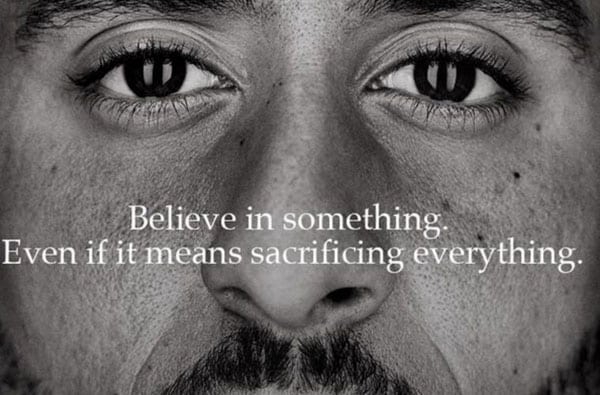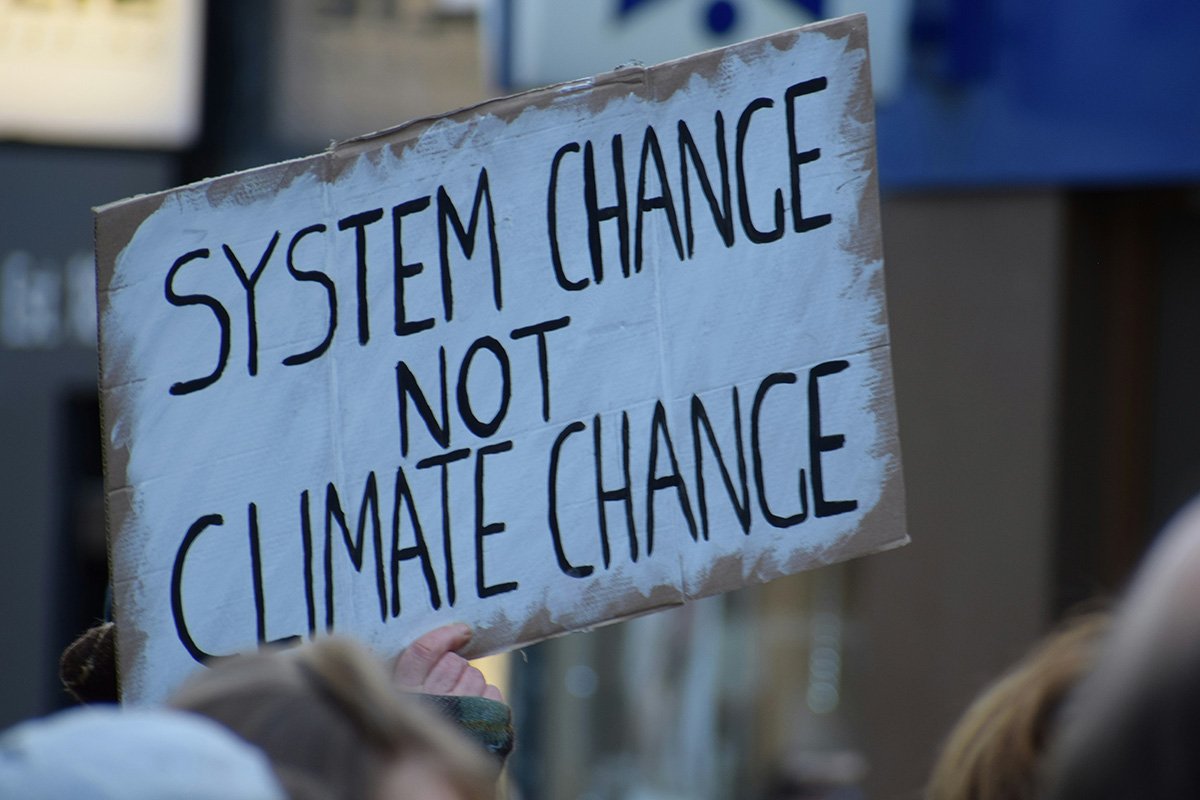
September 4, 2018; MarketWatch
Is the Nike organization flirting with disaster with its ad campaign featuring Colin Kaepernick promoting sacrifice for one’s beliefs? We doubt it, but that does not make us less happy about its celebration of the 30th anniversary of its “Just Do It” campaign. In fact, it makes us happier. We don’t think Nike itself would sacrifice much in a quest for social justice, and to us, that means the marketing department of this massive corporation has calculated its risks, which would have to include the potential loss of its contract to clothe the NFL teams, and placed itself on the right (as in more lucrative) side of history. Their market research must show there are more potential customers on the side of the players’ right to political free speech—and to legitimate protest about the longstanding problem of police violence against Black folk—than not, and that is indeed good news.
Believe in something, even if it means sacrificing everything. #JustDoIt pic.twitter.com/SRWkMIDdaO
— Colin Kaepernick (@Kaepernick7) September 3, 2018
The nature of the ad, however, might make you believe the corporation is going out on a limb in pursuit of its ideals. The day’s media coverage of all of this has been interesting, with some premature schadenfreude emanating from the Wall Street Journal when the company’s stock dropped by 3.2 points as of close of business yesterday. (Adidas shares fell by a smaller 2 percent.) Meanwhile, individuals took to social media to post pictures of themselves burning articles of Nike clothing. But, Jelani Cobb of the New Yorker writes:
Sign up for our free newsletters
Subscribe to NPQ's newsletters to have our top stories delivered directly to your inbox.
By signing up, you agree to our privacy policy and terms of use, and to receive messages from NPQ and our partners.
The shoe burners feel that Nike has elevated a man of questionable motives and suspect patriotism. But their point is undermined by a different set of images and videos, detailing the final moments of Walter Scott, Eric Garner, Tamir Rice, and the nameless others who have died in similar circumstances. Nike gambled that a greater portion of the world understands where Kaepernick is coming from.
Sally Jenkins of the Washington Post agrees, saying demographics are on Nike’s side.
Millennials, those Americans between the ages of 22 and 37, are projected to surpass Baby Boomers as the nation’s largest living adult generation in 2019, and fully 44 percent of them are of some race other than white. For post-millennials that number rises to 48 percent, and for post-post-millennials (American children under age 10), it grows to more than 50 percent.
These consumers, according to William Frey, author of Diversity Explosion: How New Racial Demographics Are Remaking America, have a different set of values that inform their buying behavior, including personal screens for social responsibility.
Jenkins also points out that Nike, probably more than many corporations, understands the dynamics of movements based in youth culture. “What it sees in Kaepernick,” she writes, “is not just a digital poster, but the face of an entire new wave. In that sense, Nike’s campaign is not radical. It’s the furthest thing from it. It’s just the future.”
So, it’s up to us to keep it real and radical as long as necessary—and to keep the heat on.—Ruth McCambridge










